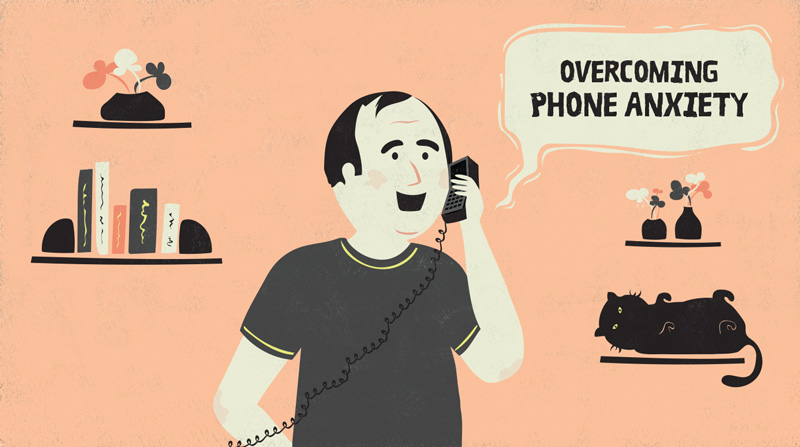Business Communication -
Overcoming Phone Anxiety

Business Communication
Overcoming Phone Anxiety


/en/business-communication/instant-messaging-etiquette/content/

Even in a world filled with emails, texting, and instant messages, your job may require you to pick up the phone and talk. However, the thought of calling strangers might cause some anxiety, bringing up questions like:
What if I can’t understand the other person?
What if they get upset?
What do I say when I call?
Thankfully, there are solutions that will alleviate these fears and build your confidence.
Watch the video below to learn some tips for overcoming phone anxiety.
It’s normal to feel nervous if you have to call someone for work, especially if you’re calling to share unpleasant news. One key thing to remember before and during your call is to breathe. Taking deep breaths clears your mind, gives you time to think, and helps slow down your speech.
If you’re nervous about speaking over the phone, consider making some practice calls first. Try calling a local store and asking for their operating hours. Simply say “Hi, what are your hours today?” Once they give you an answer, thank them and hang up. That’s it! After you make a few of these calls, your confidence should begin to increase.
While the purpose of your call could be anything, the method of making a business call is fairly simple. For instance, here’s a clear, reliable procedure for starting a call:
With this procedure, your opening should sound like this: “Hello, can I speak with Mr. Clark, please? Hi, Mr. Clark, I’m Jake from Adventure Outfitters, and I’m calling in reference to the order you placed yesterday.” As you get more comfortable with making calls, you’ll find the rhythm and language that works best for you.
Your tone of voice is also important because you want to sound natural and sincere, especially if you’re delivering unpleasant news. If you sound irritated or annoyed, the caller may pick up on it, which could make them uncooperative.
Some people are anxious about talking on the phone for a variety of reasons. Here are solutions to some of the more common fears:
Speaking on the phone can feel intimidating at first, but as you practice, this fear will fade away as your confidence builds.
/en/business-communication/business-writing-essentials/content/